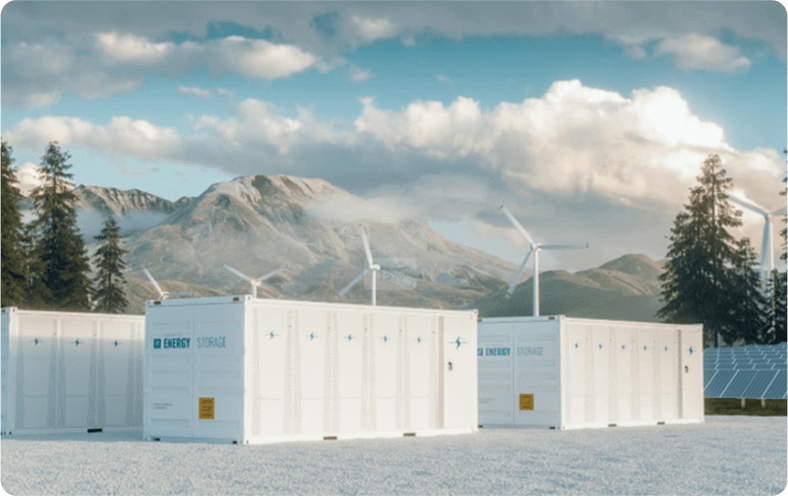Apr. 01, 2025
As the core component of energy storage systems, the quality of lithium batteries directly impacts device safety, lifespan, and performance. As an energy storage engineer, I recommend evaluating battery quality based on the following five key dimensions:
1. Cell Performance Parameters
- Capacity: Measured capacity should meet the rated value (e.g., a 100Ah cell should deliver ≥95Ah in actual discharge).
- Energy Density: High energy density (≥180Wh/kg) indicates lighter weight and higher efficiency.
- Cycle Life: High-quality cells should achieve ≥2000 cycles at 80% depth of discharge (refer to China's GB/T 36276 standard).
2. Safety Test Results
Check third-party test reports, focusing on:
- Thermal Runaway: Passes nail penetration and overcharge tests (e.g., UL9540A standard).
- Flame Resistance: Electrolyte and separator should meet V0 flame-retardant rating.
3. BMS Accuracy
The Battery Management System (BMS) should have a State of Charge (SOC) estimation error ≤3% and include multi-level protections (overvoltage, undervoltage, temperature, etc.).
4. Manufacturing Consistency
- Voltage deviation within the same batch should be <20mV; internal resistance deviation <5mΩ.
- Welding should be secure with no weak joints, and the casing must pass IP67 sealing tests.
5. Brand & Certifications
Prioritize cells from reputable brands (e.g., CATL, BYD) with international certifications like IEC62619 and UN38.3.
Engineer's Advice: Request complete test reports from suppliers and conduct a 1C charge-discharge cycle test on samples to observe capacity degradation trends.
Note: For energy storage projects, pay special attention to low-temperature performance (≥80% capacity retention at -20°C) and calendar life (>10 years). For residential storage, LiFePO4 (LFP) batteries are recommended for enhanced safety.
Through the above methods, you can systematically screen out cost-effective lithium batteries and avoid the risks of later operation and maintenance. If you have more questions about lithium batteries, please consult SolarEast.
Related Products
Related Solutions
Energy Storage Solutions for Farm & Island
+ -Whether you are looking for a reliable solar battery energy storage system for sale or a robust hybrid power network, SolarEast BESS transforms unstable grids into resilient, smart energy hubs for rural and coastal communities.
Hotel & Guesthouse Battery Storage Solutions
+ -SolarEast BESS provides hotels and inns with efficient, safe, and smart energy storage equipment designed to slash operational costs and meet carbon emission regulations. Our all-in-one hybrid energy storage systems seamlessly integrate with your existing solar energy storage system, leveraging advanced high voltage energy storage technology to ensure a stable 24-hour power supply.
Utility Scale Energy Storage Solutions
+ -Optimize Energy Efficiency. Cut Costs. Embrace Sustainability. SolarEast Battery Energy Storage Systems provides customized BESS solutions for industrial parks, farm energy storage solutions, and C&I Energy Storage System to reduce peak demand charges, stabilize power supply, and enable smart energy management. Our industrial and commercial energy storage systems cover a full range of products from 30kWh to 5MWh, including small integrated energy storage devices and large customized energy storage solutions, which are widely used in microgrids, off-grid power supply, peak cutting and valley filling, demand side management and backup power.
Residential Energy Storage System Solutions
+ -SolarEast's residential energy storage system, designed for homes, villas, sunrooms, and communities, stores solar energy to reduce power bills and ensure reliable day-and-night energy use.
Energy Storage Solutions for Industrial Parks
+ -As a leader in electrical energy storage systems, SolarEast BESS delivers turnkey solutions—from site analysis and system design to installation and long-term O&M. Our lithium battery energy storage technology ensures high cycle life and maximum safety, providing a reliable foundation for the next generation of eco-industrial parks.
Commercial & Industrial Storage System Solutions
+ -SolarEast BESS is a supplier of lithium iron phosphate batteries, microgrid energy, large-scale battery storage, grid-scale energy storage, high-voltage energy storage batteries, and energy storage solutions. SolarEast solar batteries and solutions are recognized and welcomed by customers worldwide. Our targets are focused on the following markets: industrial and commercial energy storage systems, Telecom Energy Storage Systems (TESS), transportation/utility energy storage, and large/medium/small backup power systems.


